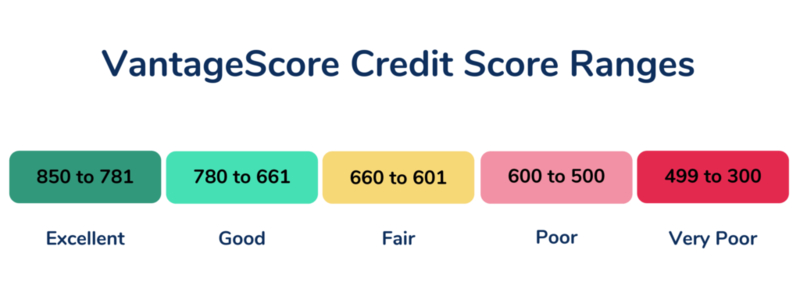Understanding the VantageScore system proves vital for assessing creditworthiness. Unlike other credit scoring models, it provides a comprehensive view of an individual's financial health, drawing data from multiple credit bureaus. This article delves into the intricacies of VantageScore, shedding light not only on its significance but also its impeccable functionality.
1. The Evolution of Credit Scoring
To truly comprehend VantageScore, one must first grasp the evolutionary trajectory of credit scoring. Traditional models placed significant reliance on factors such as payment history, outstanding balances and even more critically, the duration of an individual's credit history. Although these metrics did offer a window into a person's creditworthiness, they frequently disregarded vital elements. Consequently, precipitating discrepancies in how credit assessments were made.
As technology advanced and financial markets grew in complexity, the limitations of traditional credit scoring models manifested. Consumers possessing thin credit files or unconventional credit histories faced difficulties securing loans or achieving favorable interest rates. The necessity for a more inclusive, comprehensive scoring system emerged due to this gap in credit assessment; thus was born VantageScore.
- Consideration: Understanding the historical context of credit scoring can provide valuable insights into the rationale behind the creation of VantageScore and the shortcomings it aims to address.
- Caution: While traditional credit scoring models have their limitations, they still serve as foundational frameworks in the credit industry. It's essential to recognize the strengths and weaknesses of both traditional and alternative scoring models to make informed financial decisions.
2. Introduction to VantageScore
In response to the constraints of traditional credit scoring models, VantageScore emerged. Equifax, Experian, and TransUnion, the three major credit bureaus, developed it jointly. With innovative algorithms at its disposal, VantageScore leverages these to present a more precise reflection, of an individual's true creditworthiness. By integrating a broader range of data points, encompassing trended credit data and alternative credit information, VantageScore paints an all-encompassing picture: it provides consumers with holistic views into their unique profiles.

VantageScore, in its multi-dimensional approach to credit risk assessment, not only leverages traditional credit data but also incorporates non-traditional sources like rental payment history, utility bill payments, and public records. This strategy enables a more comprehensive evaluation of credit risk for individuals with limited histories or those who predominantly utilize alternative financial services.
- Fact: VantageScore is not the only alternative credit scoring model in the market. FICO also offers specialized scoring models, such as FICO XD, which incorporate non-traditional data to assess creditworthiness.
- Noteworthy: While VantageScore provides a broader assessment of creditworthiness, lenders may still vary in their preference for scoring models. It's essential for consumers to inquire about the scoring model used by a lender to better understand their credit evaluation process.
3. Key Components of VantageScore
Based on several key components, VantageScore evaluates creditworthiness, payment history, utilization of credit, credit age and mix, and recent credit behavior. In contrast to traditional models, VantageScore also takes into account factors such as available credit and total balances. Thus, offering a more nuanced assessment of an individual's financial habits.
Furthermore, VantageScore utilizes trended credit data. This is a tool that monitors an individual's credit behavior over a period. This functionality equips lenders with the ability to evaluate personal management of credit obligations. It presents a more predictive gauge of potential risk compared to the traditional model's static credit snapshots.
- Consideration: Understanding the key components of VantageScore can help individuals identify areas of their financial behavior that may impact their credit scores positively or negatively.
- Noteworthy: While VantageScore considers a broader range of factors compared to traditional models, the weight assigned to each component may vary depending on the version of VantageScore used by lenders.
4. Understanding Credit Risk Bands
Categorizing individuals into varying credit risk bands, VantageScore ranges these from "poor" to "exceptional". Each band aligns with a specific numerical range, higher scores signify lower credit risks. For those seeking an enhancement in their credit profiles, understanding these risk bands is vital as it enables them not only to identify areas for improvement but also track progress longitudinally over time.

Typically, individuals boasting higher credit scores secure lower interest rates and more favorable loan terms. Conversely, those with inferior scores may encounter difficulties in accessing credit or face the imposition of higher interest rates. Understanding their position within the various credit risk bands empowers consumers to proactively enhance both their financial health and overall creditworthiness.
- Fact: VantageScore periodically updates its scoring models to reflect changes in consumer credit behavior and lending practices, ensuring that its assessments remain relevant and predictive.
- Caution: While credit risk bands provide a helpful framework for understanding credit scores, consumers need to remember that credit scoring is just one aspect of their overall financial health. Other factors, such as income stability and debt-to-income ratio, also play significant roles in lenders' decisions.
5. Benefits of VantageScore
The adoption of VantageScore offers several benefits for both consumers and lenders. For consumers, VantageScore provides a more transparent and inclusive credit assessment process, allowing individuals with limited credit histories or alternative credit sources to receive fair evaluations. Moreover, VantageScore's predictive analytics enable lenders to make more informed lending decisions, leading to reduced default rates and improved portfolio performance.
In addition to enhancing access to credit, VantageScore's predictive capabilities also benefit consumers by identifying potential areas of financial risk and offering personalized recommendations for improving credit scores. This proactive approach empowers individuals to take control of their financial futures and make informed decisions about borrowing and spending.
- Noteworthy: VantageScore is widely used by lenders across various industries, including mortgage lenders, credit card issuers, and auto finance companies, making it a critical tool for consumers navigating the credit landscape
- Fact: VantageScore has evolved over the years, with the latest version (VantageScore 4.0) incorporating machine learning techniques to further enhance its predictive capabilities and accuracy.
6. Impact on Financial Decisions
VantageScore plays a significant role in shaping financial decisions for individuals and institutions alike. From securing loans and credit cards to determining insurance premiums and rental agreements, VantageScore influences various aspects of everyday life. As such, understanding how VantageScore works and how it impacts financial opportunities is essential for navigating the modern financial landscape effectively.
Furthermore, VantageScore's widespread adoption has contributed to greater financial inclusion by providing alternative credit scoring solutions for underserved populations, such as young adults and individuals with limited credit histories. This democratization of credit assessment fosters economic empowerment and enables individuals to access essential financial products and services.
- Fact: VantageScore collaborates with industry stakeholders, policymakers, and consumer advocacy groups to promote fair and equitable credit access and to address systemic barriers to financial inclusion.
- Consideration: While VantageScore offers valuable insights into creditworthiness, consumers should also be mindful of protecting their personal information and monitoring their credit reports regularly to detect any errors or fraudulent activity.
Conclusion
In conclusion, VantageScore represents a paradigm shift in the realm of credit scoring, offering a more comprehensive and inclusive approach to assessing creditworthiness. By incorporating innovative data analytics and predictive modeling techniques, VantageScore provides individuals with a clearer understanding of their financial standing and empowers lenders to make more informed decisions. As the financial landscape continues to evolve, familiarity with VantageScore is essential for anyone seeking to navigate the complexities of credit and lending effectively.







